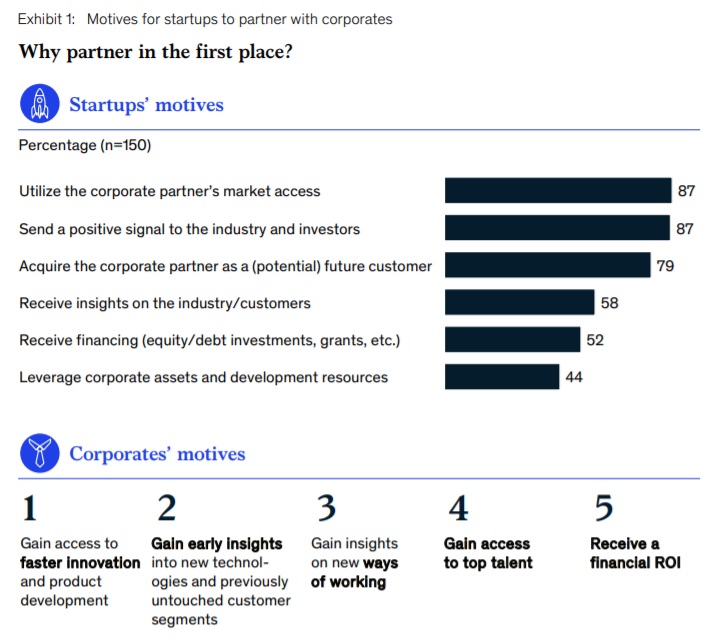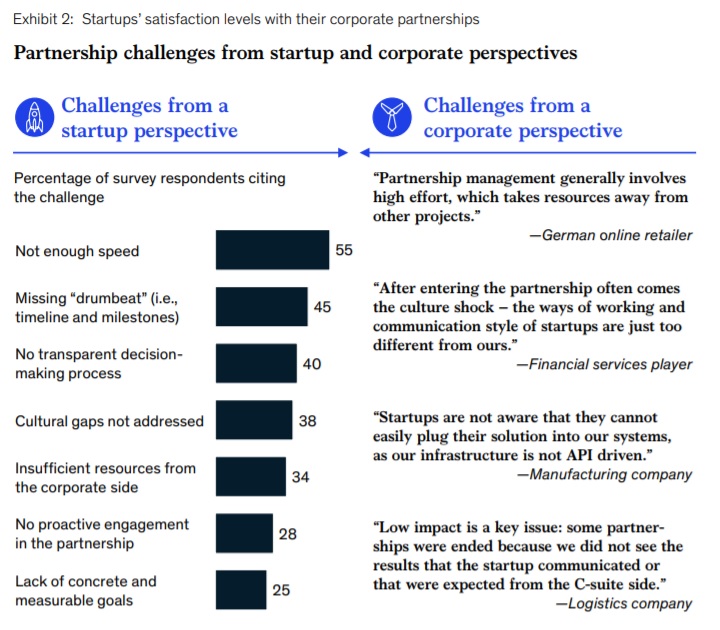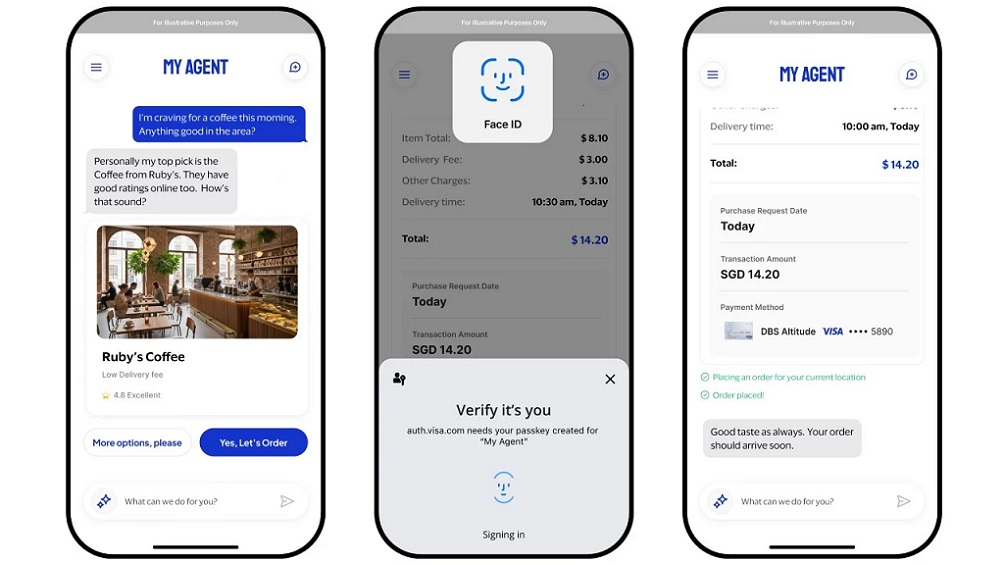72% of startups aren’t happy with their corporate partnership — this is why

an article written by Freya Pratty from Sifted
The number of partnerships between established corporates and nimble startups is skyrocketing — but not many have been successful. In fact, only 27% startups surveys in a recent report by McKinsey and Company were satisfied with how their partnership with a corporate was working. Corporations weren’t happy either, based on the comments McKinsey reported.

The reasons for dissatisfaction on the two sides were interesting. Startups tended to be unhappy because progress on the projects was too slow, without a clear timeline and milestones. Corporates said managing startup partnerships took too much effort, and that startups didn’t understand corporate constraints — you can’t just plug technology into an API at many of these older businesses. Both sides were frustrated by the cultural clash.

From the 20 corporate interviews and the survey of 150 startup leaders, the report sets out five recommendations for how the corporate-startup partnership can run more smoothly and avoid being — as one corporate leader described it — “a zoo for suits”.
Bring your A-team to the game
Bringing top management to the table is crucial — only 40% of startups said they’re satisfied with the level of attention they get from management in companies they partner with. “This is a topic for the CEO, not the CTO,” said one corporate partner.
Startups reported corporate management being excited and involved at the outset of partnerships, but losing steam during the process. To help, startups should maintain regular contact with management and both parties should set out clear points of contact for different needs the both may have.
Prevent the culture clash
Corporates can be surprised by the agile, fast-changing way that startups work, while startups find themselves faced with new levels of bureaucracy in corporate processes. This, McKinsey found, can lead to friction.
And it’s not just on a cultural level — McKinsey found startups’ API-based technologies are often difficult to plug into corporates’ complex, legacy IT infrastructures.
The solution lies in identifying cultural and technological clashes early on, before reframing them into opportunities to learn from each other.
Synchronise goals
Only 30% of the startups interviewed by McKinsey felt that they had concrete and measurable goals to work towards; even though it was something both sides agreed was critical.
For goals to be successful, there are several things they can measure:
. Product development speed, such as the percentage of technical development milestones reached
. Innovativeness, such as reaching regulatory approval or the number of granted patents
. Customer growth and retention
. Revenue
. Cost impact, such as savings brought through process digitisation
Avoid “the pilot trap”
Startups reported partnerships often beginning with a small pilot phase and then failing to scale up or move to an implementation phase.
This is largely down to scale-up being seen as too risky because of the limited insights offered by the pilot, or the fact that no clear “gateway” was defined that would signal when it was time to move forward.
To avoid this, corporates and startups should think of pilots that are sufficiently large enough projects to offer insights, and they should establish pathways for scaling from the start.
Set up focused, targeted partnerships
One corporate partner interviewed by McKinsey said visits to the startup incubator felt more like a visit to a museum or circus than a meeting between collaborators, with the startup on display and there for the corporate’s amusement.
It’s critical to set up purpose-driven partnerships that solve a specific business problem. Topic-specific partnerships create more mutual benefits — they provoke higher engagement with the startup from the corporate, and they more effectively address specific problems.
Startups are much less interested in getting money thrown at them: they want focused partnerships that can work towards a common goal.
Dariusz Mazurkiewicz – CEO at BLIK Polish Payment Standard
Banking 4.0 – „how was the experience for you”
„To be honest I think that Sinaia, your conference, is much better then Davos.”
Many more interesting quotes in the video below:










